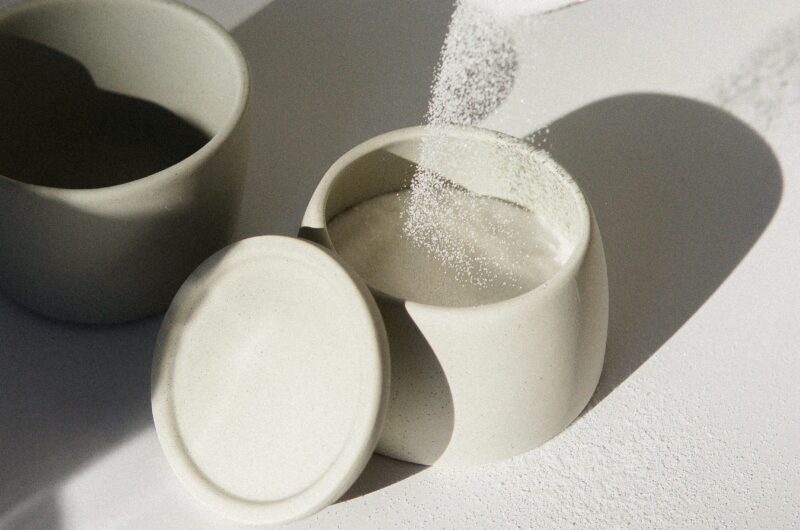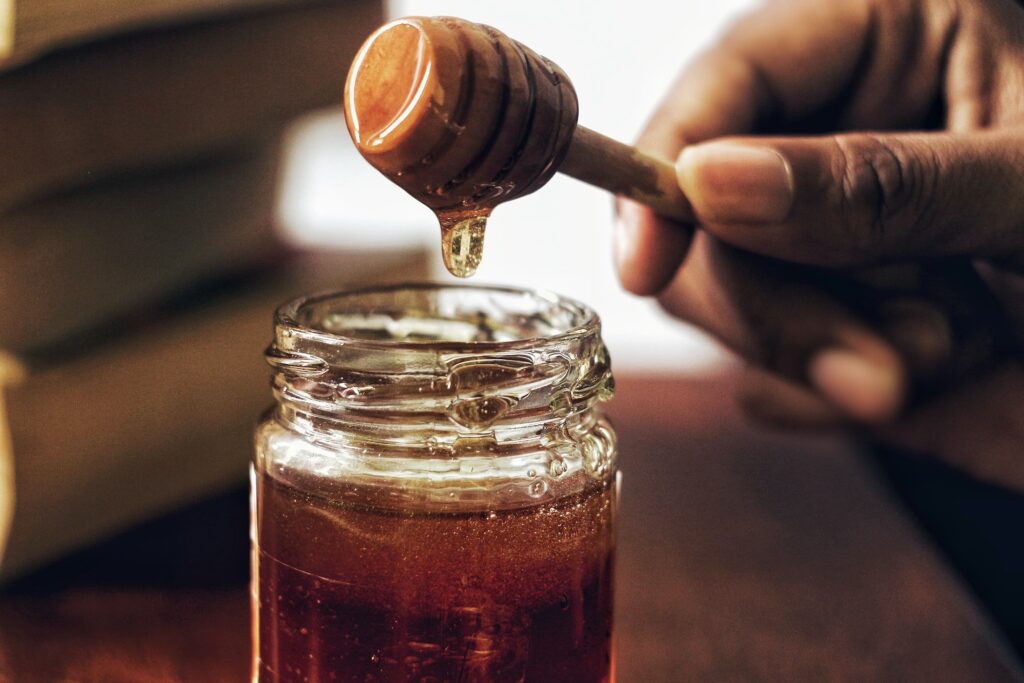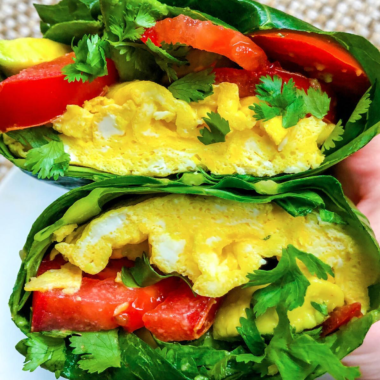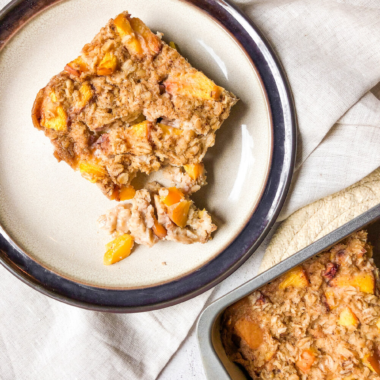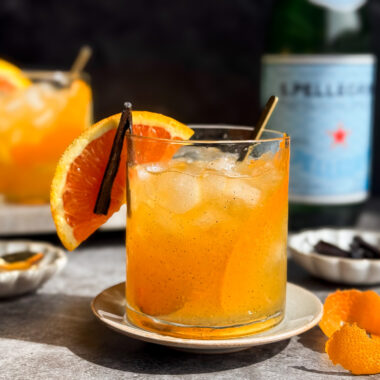This post may contain affiliate links, which means I make a small commission off items you purchase at no additional cost to you. Please read my disclaimer page.
Sugar is sneaky and is often disguised under odd names on nutrition labels. Unfortunately, some form of sugar or sweetener is in most packaged foods, and this poses a lot of issues for every person who consumes them. Over 68% of barcoded food products sold in the U.S. contain added sweeteners—even if they are labeled as “natural” or “healthy.” That is a lot!!
Just because you don’t see “sugar” on the ingredient list when reading a nutrition label does not guarantee the item is sugar or sweetener-free. There are 68 different types of sugar and sweeteners that you should be aware of when reading nutrition labels. While some of these names are more obvious (ex. brown sugar), others are trickier to spot (ex. maltodextrin).
Why You Should Limit Refined Sugars
- It is highly addictive
- Leads to insulin resistance and diabetes
- Causes weight gain, specifically in the abdomen and around the organs (the most dangerous place to store fat)
- Leads to nutrient deficiencies – Sugar decreases absorption of nutrients and also depletes nutrients in food and your body
- Leads to depression, anxiety, chronic fatigue, irritability and mood swings
- It has been linked to acne and acceleration of the skin aging process
- Exhausts the liver and can lead to fatty liver
- Suppresses the immune system, therefore increasing vulnerability to illness
- Increases the chances of developing cancer
- Increases your risk of heart disease
- Increases inflammation within the body
- Increases hyperactivity in children
What To Look Out For
The best way to ensure you’re not consuming excess added sugars is to get in the habit of reading the ingredient list before you purchase them.
Once you start reading the ingredient list on products you buy, you will be shocked that almost all of them have added sugars – and typically more than one! Some of the biggest culprits, obviously aside from dessert items, are cereals, low-fat products (they replace the fat with sugar to make it taste good), jellies and jams, tomato products (ketchup, pasta sauce, etc), salad dressings, drinks (juice, soda, etc), sauces (BBQ sauce, etc). Essentially everything has added sugar nowadays, even basic items that really don’t need sugar added – but they add it because it’s addicting and keeps us coming back for more.
Keep in mind when reading nutrition labels that the ingredients are listed by quantity from highest to lowest: The closer to the front of the list a form of sugar is, the more the product contains. You definitely don’t want to see sugar as a top ingredient!
Are all of these added sugars terrible for your health?
As a Nutritionist, there are actually a few forms of sugars on this list that I approve of and they are ones that I personally use in my recipes and ones that I do not fret about being in healthy packaged foods to eat as treats. I will list these later on in the post!
Sugar synonyms – the most common names for sugar
Basic Simple Sugars (monosaccharides and disaccharides):
- Dextrose
- Fructose
- Galactose
- Glucose
- Lactose
- Maltose
- Sucrose
Solid or Granulated Sugars:
- Beet sugar
- Brown sugar
- Cane juice crystals
- Cane sugar
- Castor sugar
- Coconut sugar
- Confectioner’s sugar (aka, powdered sugar)
- Corn syrup solids
- Crystalline fructose
- Date sugar
- Demerara sugar
- Dextrin
- Diastatic malt
- Ethyl maltol
- Florida crystals
- Golden sugar
- Glucose syrup solids
- Grape sugar
- Icing sugar
- Maltodextrin
- Muscovado sugar
- Panela sugar
- Raw sugar
- Sugar (granulated or table)
- Sucanat
- Turbinado sugar
- Yellow sugar
Liquid or Syrup Sugars:
- Agave Nectar/Syrup
- Barley malt
- Blackstrap molasses
- Brown rice syrup
- Buttered sugar/buttercream
- Caramel
- Carob syrup
- Corn syrup
- Evaporated cane juice
- Fruit juice
- Fruit juice concentrate
- Golden syrup
- High-Fructose Corn Syrup (HFCS)
- Honey
- Invert sugar
- Malt syrup
- Maple syrup
- Molasses
- Rice syrup
- Refiner’s syrup
- Sorghum syrup
- Treacle
Artificial Sweeteners:
Although artificial sweeteners do not contain “sugar” or carbohydrates in them, they still raise our blood sugar levels substantially. Aside from that, they are very detrimental to our health and should always be avoided.
- Aspartame.
- Sucralose.
- Acesulfame K.
- Saccharin.
Sugar Alcohols:
Sugar alcohols are known to cause the least rise to our blood sugar levels but they still come with some risk. They can cause digestive issues (bloating, constipation, gas, diarrhea, IBS, etc) and they are honestly unnecessary additives. In my experience, they also generally ignite sugar cravings rather than satisfy them because they are truly nutrient devoid and offer zero benefits in our diet. There’s still so little known about sugar alcohols – they are a fairly new creation (which I also don’t like – I don’t want our food ingredients created in a lab!) and there’s not enough evidence that they don’t have longterm effects. I would much prefer you to eat healthy sweeteners that do contain carbohydrates (I list them later a little further down). In the meantime, here’s the list of sugar alcohols:
- Erythritol
- Xylitol
- Manitol
- Sorbitol
- Lactitol
- Isomalt
- Maltitol
- Hydrogenated starch hydrolysates (HSH).
This may seem like way too many forms of sugar – and you’re right!
It’s very sad that over the years, food companies are using different types of sugar or disguising “sugar” under these alternative names in order to prevent us from doubting whether we should buy it. Beware that this isn’t just because they’re having fun experimenting with different sweeteners – this is the development of companies doing their best to keep us coming back for more.
Sugars I Approve of as a Nutritionist:
The most natural and least processed sugars that I enjoy using in sweet treats are these:
Maple Syrup – make sure it’s 100% maple syrup with no other additives.
Honey – make sure it’s raw and buy local if you can.
Coconut sugar – affordable and easily accessible! There are different varieties sometimes: “Golden” is closest to white sugar while “brown” is closest to brown sugar.
Maple sugar – pretty expensive, so I always use coconut sugar instead. But maple sugar is still a great option.
Date sugar – Make sure it’s 100% date sugar (literally dehydrated dates that are ground up) and doesn’t have other sugars added.
Stevia – Make sure it’s 100% stevia. A lot of options for “stevia” have added sugars, sugar alcohols, and flavors added.
These sugars are the least foreign to our bodies (because they don’t come from GMO crops and they aren’t overly processed or chemically altered) and do not mess with our glucose and insulin levels like the other ones do. So yes, you can still enjoy sweets even within a healthy diet! Check out this post for a guide on the best unrefined sugars for baking.
Another reason why I like to use these sugars is because they’ll actually satisfy your sweet tooth. The sugar alcohols, artificial sweeteners, and overly processed/chemically altered sugars I listed earlier in the post typically make you crave more sugar because they are addictive and negatively affect your gut microbiome. But honey, maple syrup, and coconut sugar typically satisfy your sugar cravings (as long as they’re eaten within a balanced diet of course). Obviously, if you ate a ton of the honey, maple syrup, and coconut sugar, then you would still pose the risk of raising blood sugar too much and possibly causing some inflammation, but these sweeteners are healthy when not overdone – and when eaten in a balanced diet.
Other “Sweeteners” I Like Using:
Real fruit! I like using bananas, coconut, dates, apples, figs, pineapple, berries, and other fruit to naturally sweeten dessert. It’s also great to get in the extra fiber and nutrients that these foods provide. These are the best at satisfying sugar cravings because they are so nutrient-dense AND they contain healthy fiber which is filling and feeds the healthy bacteria in our gut!
Disclaimer:
If you have Type 2 Diabetes, then it’s definitely best to be weary of too much healthy sweeteners because they still do raise glucose levels. Take extra caution to eat healthy fats and protein at every meal to help balance your blood sugar levels.

